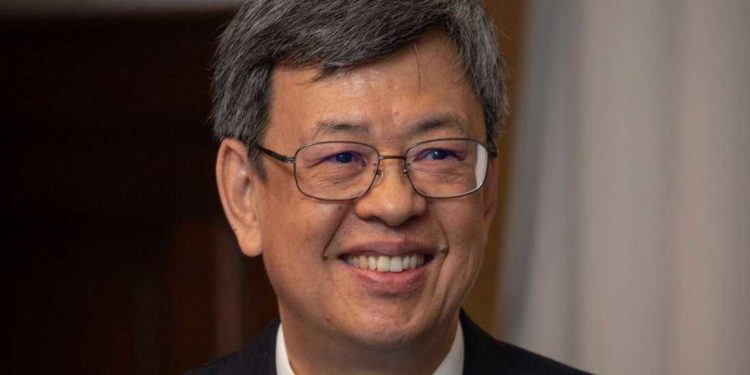Chen Chien-jen takes up role as ruling party seeks govt restructuring after local election defeat
Chen Chien-jen, 71, a Catholic politician and prominent epidemiologist, is the new Prime Minister of Taiwan. (Photo: Facebook page of Chen Chien-jen)
Taiwan’s President Tsai Ing-wen appointed former vice-president Philip Chen Chien-jen, a Catholic and prominent epidemiologist, as the new premier of the island nation on Jan. 26, media reports say.
The appointment of 71-year-old Chen comes as the ruling Democratic Progressive Party seeks a cabinet reshuffle following the party’s heavy losses in recent local elections.
In a press statement on Jan. 25, Presidential Office spokesman, Xavier Chang, announced that Tsai had invited Chen to take up the role of Taiwan’s new Prime Minister, Focus Taiwan reported.


The DPP had suffered a crushing defeat in November 2022 local elections winning only five of 21 city and county leadership posts.
Chen, 71, would be taking over the reins from Su Tseng-chang, Taiwan’s longest-serving premier since direct presidential elections in Taiwan began in 1996. Su resigned on Jan 19 along with other cabinet members citing the local election setback.
Following the defeat, Tsai immediately resigned as DPP chair and called for structural reform in the government.
Chen joined campaigning for the party ahead of November’s local elections after joining the DPP last year.
He also served as Taiwan’s health minister from 2003-2005, as head of the National Science Council from 2006-2008, and as vice president from 2016-2020. He served as the vice president of Academia Sinica, the national academy of Taiwan, from 2011-2015.
In January, Chen attended the funeral of Pope Benedict XVI at the Vatican as Tsai’s special envoy.
In August 2021, he was appointed a member of the Vatican’s Pontifical Academy of Sciences. He was the second Taiwanese after Nobel Prize laureate chemist Lee Yuan-tseh to become a member of the academy.
A devout Catholic, Chen entered Taiwanese politics in 2003, when he was appointed to lead the Ministry of Health and Welfare in the fight against the deadly SARS epidemic.
Chen is credited with playing a vital role in Taiwan’s successful battle against the Covid-19 pandemic.
However, the DPP’s move to bring in Chen and a new line of administrators is intended to stabilize the political turmoil that it faces following the poll defeat and pave way for the upcoming presidential and parliamentary elections in 2024.
Many opposition party members were skeptical about Chen’s appointment.
Jang Chyi-lu, a Taiwan People’s Party legislator pointed out that Chen needs to deal with the pressing issues of the nation such as cross-strait relations with China “immediately,” reported the Taipei Times.
“The country is experiencing all sorts of problems, from strained cross-strait relations to skyrocketing housing prices, stagnant salaries, delays in US arms sales to Taiwan, and a decline in agricultural and fishery product exports. These issues will have to be addressed immediately once he becomes premier,” Jang said.
However, many DPP members, including legislator Hsu Chih-chieh, believe that the image that Chen has built as a Catholic and an epidemiologist along with his communication skills would help them succeed in improving governance.
“As the convener in charge of reforming the pension systems for military personnel, civil servants, and public-school teachers, Chen showed great communication skills.,” the Taipei Times reported Hsu as saying.
“As a Catholic, he cares for the economically disadvantaged, and knows a lot of people in diplomatic and religious circles,” he added.
Taiwan, officially the Republic of China, is a democratic and sovereign country that never officially declared independence. China considers Taiwan a renegade province and threatens to annex it.
Taiwan does not have sovereign status at the United Nations due to opposition from China. However, it maintains diplomatic relations with 14 countries and trade relations with some 47 states.
The US is Taiwan’s strongest ally, and the Vatican is the only European state to maintain diplomatic relations with Taiwan.
About 4 percent of Taiwan’s nearly 24 million population are Christians, while Buddhists make up about 35 percent, Taoists 33 percent, and non-religious about 19 percent, according to official figures.
Latest News
Credit: Source link


